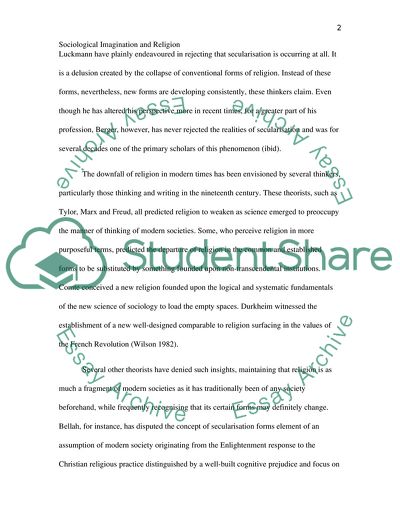Cite this document
(Sociological Imagination and Religion Case Study, n.d.)
Sociological Imagination and Religion Case Study. Retrieved from https://studentshare.org/religion-and-theology/1719675-perhaps-the-most-fruitful-distinction-with-which-the-sociological-imagination-works-is-between-the-personal-troubles-of-milieu-and-the-public-issues-of-social-structure-how-does-the-sociological-imagination-enrich-our-understanding-of-religion
Sociological Imagination and Religion Case Study. Retrieved from https://studentshare.org/religion-and-theology/1719675-perhaps-the-most-fruitful-distinction-with-which-the-sociological-imagination-works-is-between-the-personal-troubles-of-milieu-and-the-public-issues-of-social-structure-how-does-the-sociological-imagination-enrich-our-understanding-of-religion
(Sociological Imagination and Religion Case Study)
Sociological Imagination and Religion Case Study. https://studentshare.org/religion-and-theology/1719675-perhaps-the-most-fruitful-distinction-with-which-the-sociological-imagination-works-is-between-the-personal-troubles-of-milieu-and-the-public-issues-of-social-structure-how-does-the-sociological-imagination-enrich-our-understanding-of-religion.
Sociological Imagination and Religion Case Study. https://studentshare.org/religion-and-theology/1719675-perhaps-the-most-fruitful-distinction-with-which-the-sociological-imagination-works-is-between-the-personal-troubles-of-milieu-and-the-public-issues-of-social-structure-how-does-the-sociological-imagination-enrich-our-understanding-of-religion.
“Sociological Imagination and Religion Case Study”. https://studentshare.org/religion-and-theology/1719675-perhaps-the-most-fruitful-distinction-with-which-the-sociological-imagination-works-is-between-the-personal-troubles-of-milieu-and-the-public-issues-of-social-structure-how-does-the-sociological-imagination-enrich-our-understanding-of-religion.


